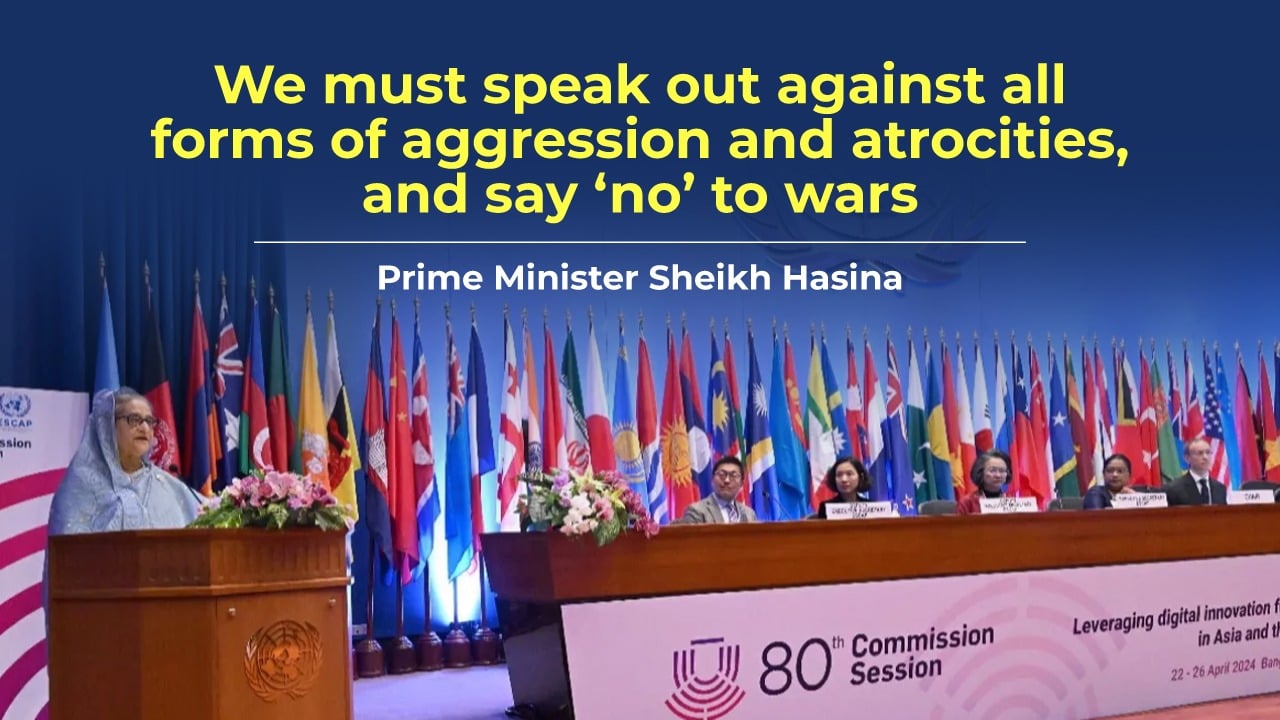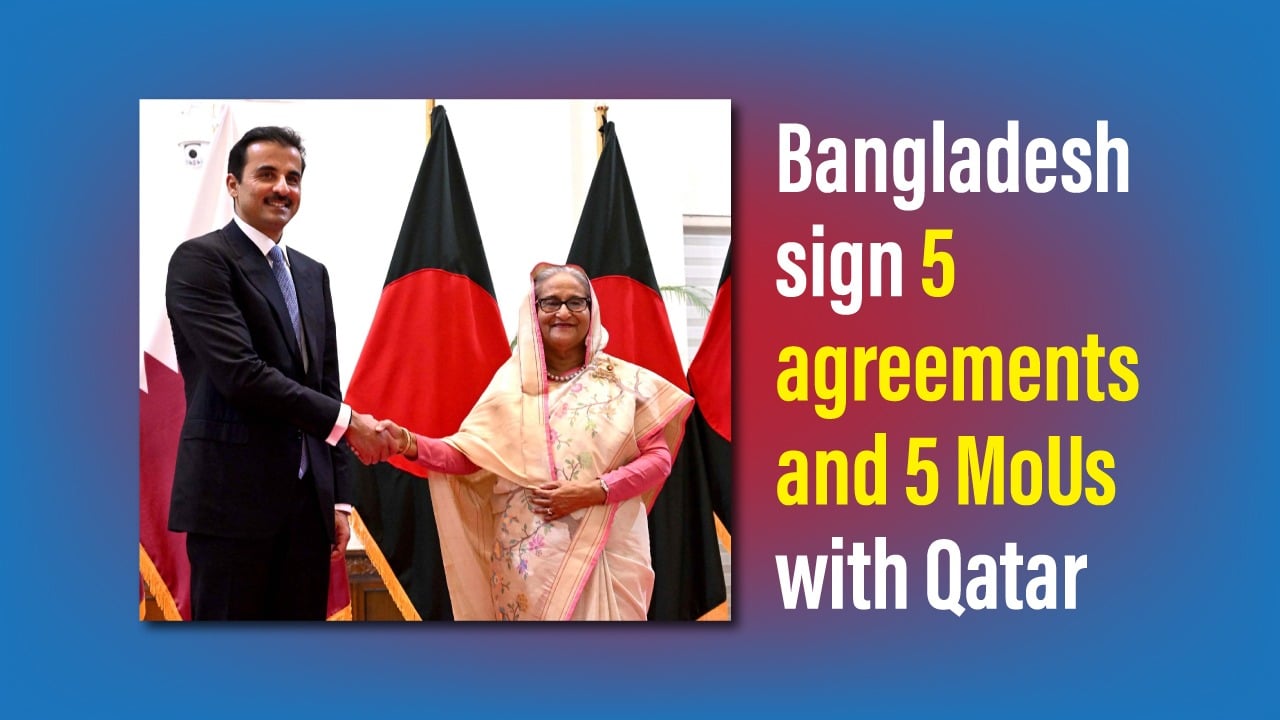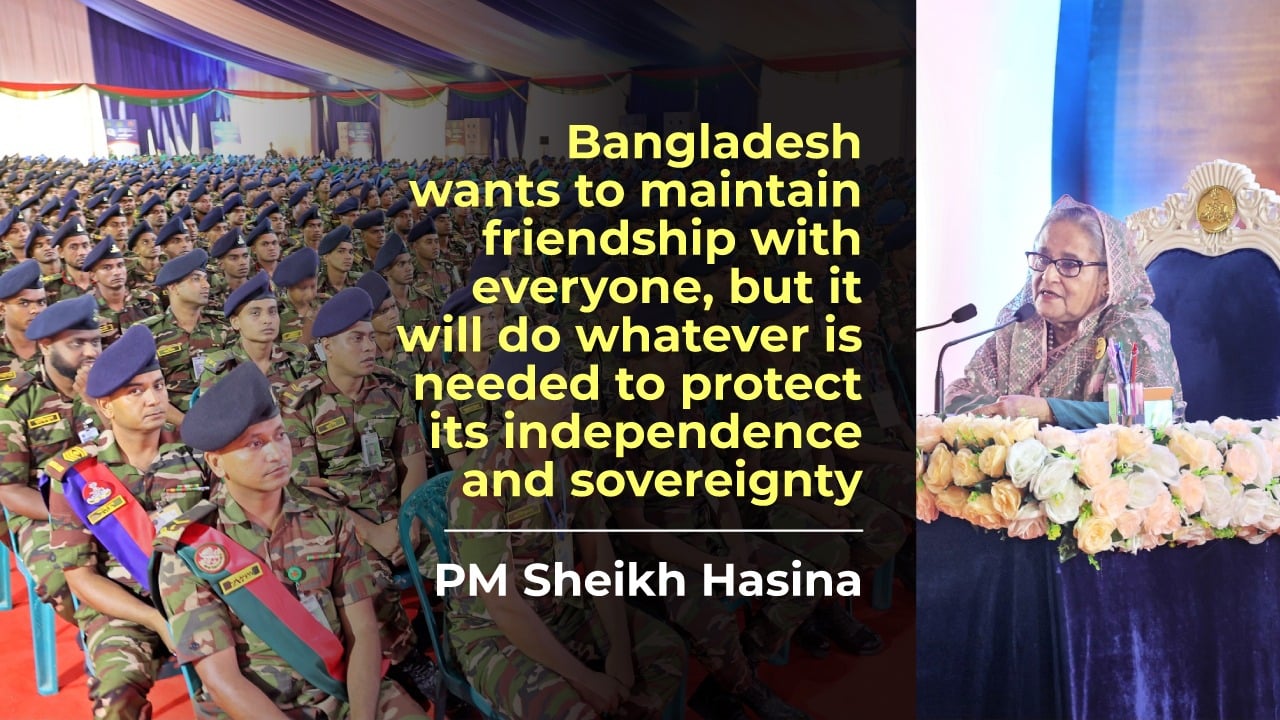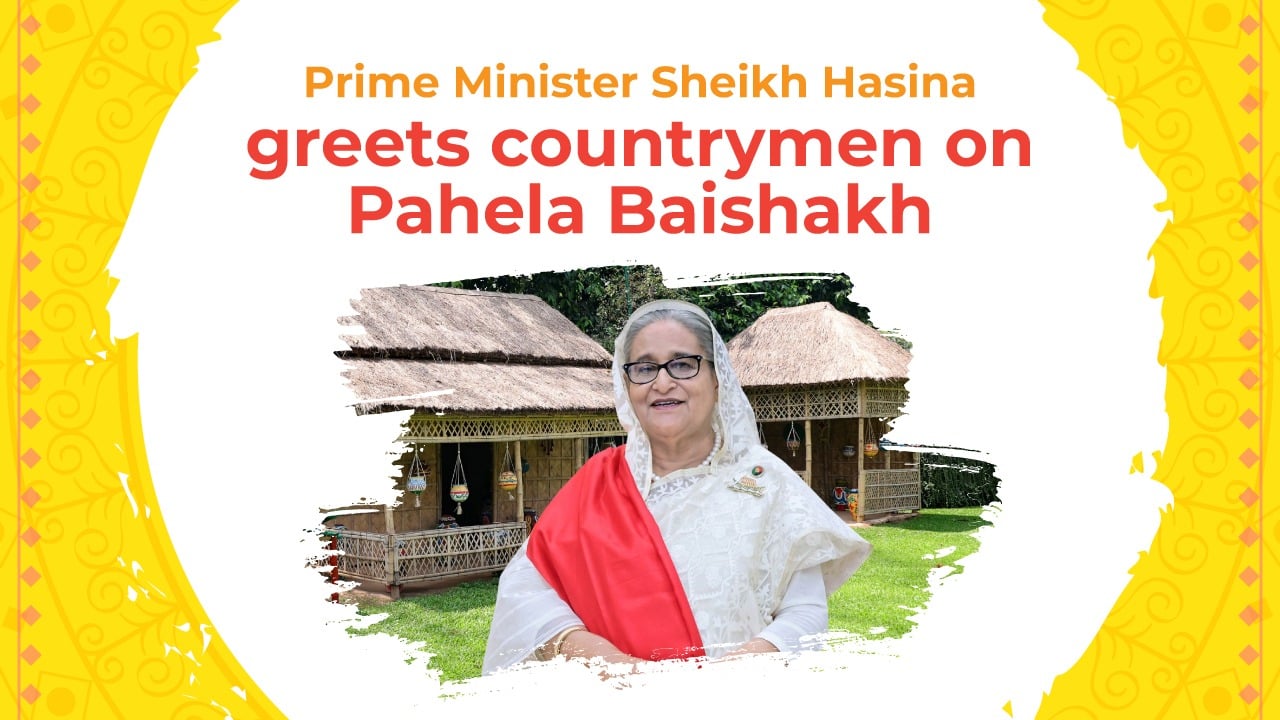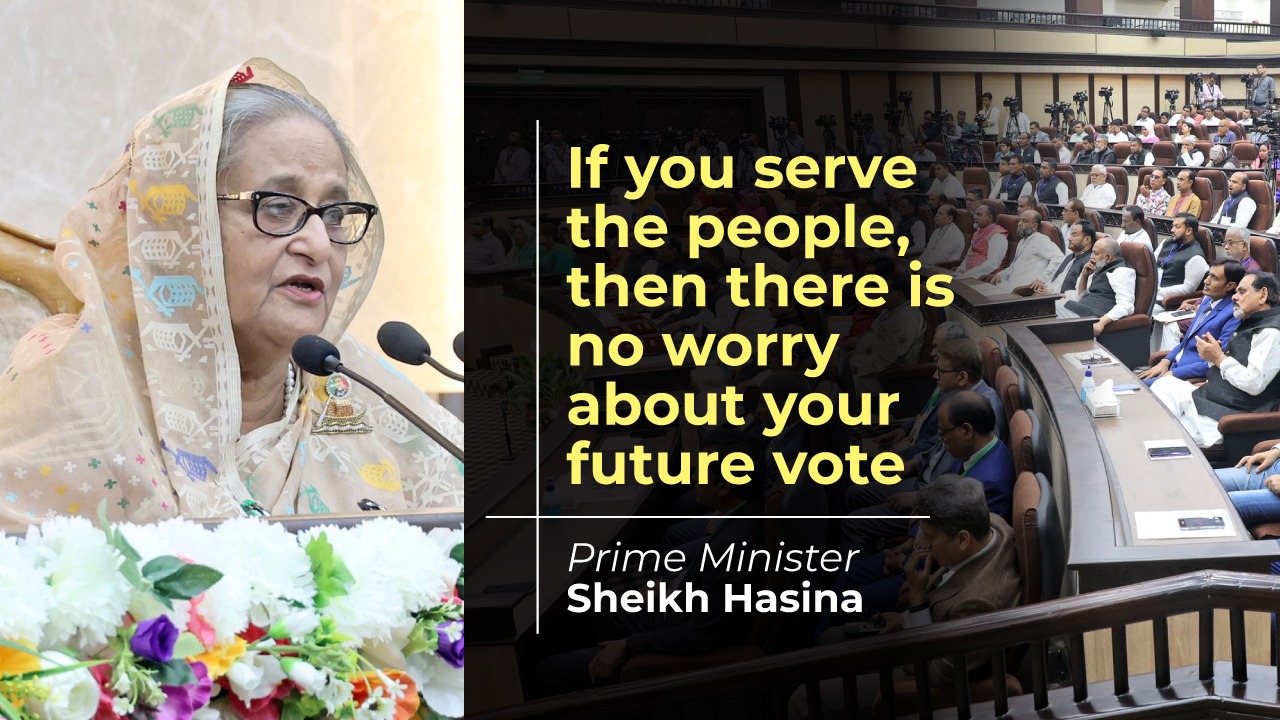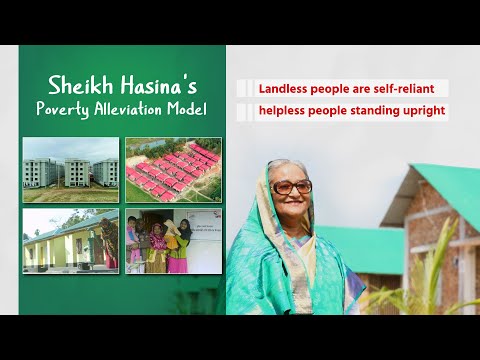1495
Published on September 17, 2023Hiren Pandit:
Prime Minister Sheikh Hasina and Indian Prime Minister Narendra Modi met in a bilateral meeting at Lok Kalyan Marg in New Delhi recently on the occasion of G20. Prime Minister Sheikh Hasina held a whole-hearted meeting with Indian Prime Minister Narendra Modi. The meeting was held at Narendra Modi's residence. At the end of the meeting, Modi said, the discussion was very fruitful, and bilateral relations were satisfactory. Foreign Minister AK Abdul Momen said Narendra Modi praised Sheikh Hasina's leadership in the meeting. He also thanked Sheikh Hasina for the peaceful situation in North-East India.
Prime Minister Sheikh Hasina arrived in New Delhi at noon on September 8 for the G20 conference and bilateral talks. The meeting at Narendra Modi's residence was the first program of her visit to India. Sheikh Hasina reached Narendra Modi's residence at 5:30 PM local time in India. Modi greeted Sheikh Hasina himself. The meeting that started after that lasted for an hour. First, the delegation led by the Prime Ministers of the two countries held a formal discussion. Later, Sheikh Hasina and Narendra Modi spoke privately and exclusively. After the meeting, Narendra Modi said on Twitter, "There was a fruitful discussion with Prime Minister Sheikh Hasina. The progress of India-Bangladesh relations in the last nine years has been very satisfactory. Our discussions included connectivity, commercial linkages, and many more.'
The bilateral meeting was held in a very cordial atmosphere. Both the Prime Ministers discussed important issues of bilateral interest. The Prime Minister recalled India's contribution to our Liberation War with deep respect and expressed special thanks to the Prime Minister of India for inviting her to the G20 Leaders’ Summit. She expressed her gratitude to the Prime Minister of India for taking the necessary initiatives to protect the interests of other parts of the world, especially the G20, by bringing the issues of interest to the attention of the G20. Both the Prime Ministers expressed satisfaction over the existing deep relationship between Bangladesh and India and agreed to take effective steps to further this relationship.
The Foreign Minister said that in the meeting, the Indian Prime Minister appreciated the strong leadership of Sheikh Hasina for the great development of Bangladesh.
The Foreign Minister said that on the eve of the Prime Minister's visit, three MoUs have been signed between the two countries. The MoUs signed are - MoU between the Bangladesh Agricultural Research Council and the Indian Council of Agricultural Research for assistance in agriculture. Under this MoU, cooperation in agricultural research and training will be strengthened between the two countries. Various steps and programs will be taken to further strengthen cooperation between the two countries in the arts, literature, and cultural sectors through the Memorandum of Understanding on Cultural Cooperation.
The third MoU was signed between India's NPCI International Payments Limited and Bangladesh Bank. As a result of this MoU, mutual transactions between the two countries will be facilitated. In response to a question, the foreign minister said that there was no discussion about the election. I do not know if it was discussed in a private meeting.
In the bilateral meeting, Prime Minister Sheikh Hasina was accompanied by Prime Minister's daughter Saima Wazed Putul, Nephew Radwan Mujeeb Siddique, Foreign Minister Dr. AK Abdul Momen, Principal Secretary of the Prime Minister's Office Tofazzal Hossain Miah and Foreign Secretary Masud Bin Momen. External Affairs Minister Jaishankar, Foreign Secretary Vinay Kwatra, National Security Advisor (NSA) Ajit Doval, and others were present on behalf of India.
Sheikh Hasina wants India's cooperation in Rohingya repatriation. The Indian Prime Minister has urged discussions to resolve the outstanding issues between the two countries. Earlier, Prime Minister Sheikh Hasina left Dhaka for New Delhi on a three-day state visit at the invitation of Indian Prime Minister Narendra Modi. The visit is to attend the G-20 summit in New Delhi on September 9-10. Incidentally, the country has invited 9 countries including Bangladesh to participate as guest countries in this year's G-20 conference to be held in India. Bangladesh is the only country in South Asia to be invited to the conference based on the existing relations between India and Bangladesh.
Sheikh Hasina expressed her gratitude and special thanks to the Prime Minister of India for inviting her to the G-20 Summit. She also expressed her gratitude to the Prime Minister of India for taking the necessary initiatives to protect the interests of the backward and disadvantaged community of the world, especially the 'Global South', by bringing the issues related to the interests of the G-20 to a large scale. The Prime Minister of India congratulated Bangladesh for actively participating in the G-20 meetings. Both the Prime Ministers expressed satisfaction over the existing deep relationship between Bangladesh and India and agreed to take effective steps to further this relationship. The Prime Minister mentioned that after her successful state visit to New Delhi on 04-08 September last year, a lot of visible progress has been achieved in various areas related to bilateral interests.
Both the Prime Ministers expressed satisfaction with this. In the meeting, the Prime Minister informed the Indian Prime Minister about the success achieved by Bangladesh in various socio-economic fields. The Prime Minister of India appreciated the strong leadership of the Prime Minister for the tremendous progress of Bangladesh.
Diplomatic analysts believe that this meeting between Indian Prime Minister Narendra Modi and Bangladesh Prime Minister has taken India-Bangladesh relations one step further. They think that this meeting is a reflection of mutual trust, faith, and friendship between India and Bangladesh.
The issue of 'regional peace and stability' has received great importance in the meeting. Our issue is regional peace and stability. We have been saying this time and again, India is also saying the same." “If this thing is destroyed, it will affect not only our two countries but the whole of South Asia. We have said this in the meeting, India has also agreed with it".
It is reported from Bangladesh that Prime Minister Sheikh Hasina has also requested the uninterrupted supply of daily necessities from India to Bangladesh. The meeting is at a time when the next general election of Bangladesh is only three or three and a half months away.Since India's support for Sheikh Hasina's government is considered to be a very strong factor in the international arena, the political and diplomatic significance of this meeting between the two just before the elections in that country was immense. In this background, India's pledge of strong support and help to protect the democratic tradition and political stability in Bangladesh will remain intact.
This bilateral meeting of Narendra Modi with Sheikh Hasina in Delhi was being given due importance by both countries long ago. Especially since only two weeks ago at the BRICS summit in Johannesburg, South Africa, there was no meeting between them even though both were present, so this meeting in Delhi also had a special significance. A senior official of India's Ministry of External Affairs said, "Prime Minister Sheikh Hasina went to BRICS at the invitation of the host country South Africa and she has come to Delhi on the special invitation of Prime Minister Modi, so no matter how busy we are with G-20, we had to have this bilateral meeting between the two leaders."
Minutes before Prime Minister Sheikh Hasina landed at the Delhi airport, Prime Minister Narendra Modi himself tweeted, "I am eagerly awaiting three bilateral meetings at my residence this evening." He also said that in the evening he will hold three separate bilateral meetings with Mauritius Prime Minister Pravind Jugnath, Bangladesh Prime Minister Sheikh Hasina, and US President Joe Biden. "These meetings will provide an opportunity to review our bilateral relations and strengthen development cooperation with these three countries". The way he held separate meetings with the heads of government of three specific countries at his Lok Kalyan Marg residence before the start of the main G20 meeting is also considered very significant by observers. It is well-known how close India's strategic relationship with the US has been lately. India's relationship with Mauritius, both a member of the Quad and a member of the international alliance, is very old and very friendly. Meeting with Bangladesh on the same day also has a diplomatic, political tactical, or strategic importance.
Harshvardhan Shringla, who is the chief coordinator on behalf of India at the G-20 summit, also reminded that Bangladesh is the only one in South Asia, but India has given a special invitation to the G-20. Standing at the venue of the G-20 meeting, this former foreign secretary of India and the former High Commissioner appointed in Dhaka told the media, "It is important to note that Bangladesh has been invited as a very close and friendly neighbor."
He also described the fact that the Prime Minister of Bangladesh is among the first world leaders PM Modi is meeting as a 'very important' matter. In fact, despite the presence of more than two dozen members and leaders of invited countries in the G-20, no effort was spared to convey that the host country India is giving special importance to neighboring Bangladesh.The spokesperson of the Ministry of External Affairs, Arindam Bagchi, also posted a video in the afternoon, reminding the two leaders of India and Bangladesh that they meet face-to-face or virtually and discuss various issues.
The government sent Darshana Vikram Zardosh, Minister of State for Railways and MP elected from Surat, Gujarat, known as Prime Minister Modi's confidant, to welcome Prime Minister Hasina at the airport. Smita Panth, Joint Secretary of the Bangladesh and Myanmar Desk at the Ministry of External Affairs in Delhi was also present. Besides, Bangladesh High Commissioner in India Mostafizur Rahman, and senior officials of the High Commission were also present on the tarmac to welcome Prime Minister Hasina. It is noteworthy that Prime Minister Hasina came to Delhi as a guest at the G-20, but she is trying to use this stage as much as possible in the interests of Bangladesh's regional and economic diplomacy.
Cultural, social, and economic ties between India and Bangladesh, history, culture, language, tradition, and arts are similar, so the passion of the people of the two countries is almost the same. Although India became directly involved in the war for Bangladesh at the end of the Liberation War in 1971, it kept its border open since the beginning of the genocide of Bengalis by the Pakistanis. About 1 crore people left their homes and took refuge in India to escape the brutality. The Government of India provided shelter and food to the oppressed people for 9 months despite various difficulties.
Relations between independent Bangladesh and its neighbor India began with India's recognition of Bangladesh on 6 December 1971. That relationship reached a different height through the diplomatic wisdom and ideological leadership of Bangabandhu Sheikh Mujibur Rahman and Indira Gandhi. In a speech delivered at the Brigade Parade Ground in Kolkata on 7 February 1972, Bangabandhu said, 'I firmly believe that India-Bangladesh friendship will remain unbroken forever. No power in the world can break this alliance. Bangabandhu laid the foundation of the relationship between the two countries based on respect for each other's independence, sovereignty, territorial integrity, democratic norms, and values. Prime Minister Sheikh Hasina is following the path of diplomatic relations shown by Bangabandhu. Due to the strategic situation both the countries have priority in each other's foreign policy. It should be noted that in 1975, Bangabandhu's daughter Sheikh Hasina was sheltered in India for six years after losing all her family members.
Due to the successful diplomatic efforts of the Sheikh Hasina government, the long-unsettled land and sea boundaries with India have been peacefully demarcated. In 2011, Bangladesh-India signed an important agreement to resolve border issues, known as the Three Bigha Corridor Agreement. Through this, India agreed to 24-hour travel for Bangladeshi citizens through the three-bigha corridor. In 2015, the Indian Parliament unanimously approved the Land Boundary Agreement signed in 1974, ending the border dispute between the two countries. In 2015, 50,000 alienated citizens, who had no nationality, became citizens of India or Bangladesh through 162 enclave exchanges. Through the exchange of enclaves, 111 enclaves of India became part of Bangladesh and 51 enclaves of Bangladesh became part of India. Bangladesh gets 17 thousand 258 acres and India gets 7 thousand 110 acres of land.
If the agreement can be carried out in a balanced manner, preserving the interests of both parties, it will bring benefits to the businessmen of the two countries. Common history, similar values, traditions, arts, and social contexts are natural for such mutual development of goodwill. In addition to the goodwill of bilateral development, emphasis should also be placed on implementation.
Bangladesh and India recognize each other's geographical boundaries, sovereignty, regional security, and economic development. Both countries are very active as development partners of each other. In 2011 and 2014, India provided loans to Bangladesh for infrastructure development. India has assisted with $8 billion to Bangladesh under various loan agreements (until 2020), which is the highest assistance given to any single country. India's military agreement with Bangladesh was executed in 2017. The implementation of the loan agreement, which started a decade ago, is slow due to various reasons, but it is expected to speed up soon.
In the age of globalization, there is no substitute for a communication system in building bilateral and multilateral relations. In the past few years, various bilateral agreements have been signed under the leadership of Prime Minister Sheikh Hasina, including bilateral trade agreements, protocols related to inland navigation routes, Dhaka-Guwahati-Shillong and Kolkata-Dhaka-Agartala bus services, MoUs related to the use of Chattogram and Mongla ports, which The two countries have played an indelible role in expanding inter-communication. Akhaura-Agartala rail link, Khulna-Mongla rail link, and Mithali Express have been launched and unprecedented improvement has been achieved in the communication system. Recently, the communication between the two countries has been strengthened with all existing land and sea links. Padma Rail Link and Khulna-Mongla Railway have set a unique precedent for the communication between the two countries. Advances in inter-communication systems will play a huge role in increasing human-to-human communication.
The role of proper water management is important in combating climate change. Given this, the historic Ganga water-sharing agreement was signed in 1996 between the two countries. The Ministerial meeting of the Joint Rivers Commission has already decided to finalize the outline of the water distribution of seven rivers on a priority basis and it has been decided to exchange water data of eight rivers. The two countries have also agreed on a joint survey on the maximum use of water in the joint river Ganga, which flows through Bangladesh. There are challenges in Teesta River water sharing but they can be resolved through mutual agreement. Both countries will benefit if the Hon'ble Prime Minister's visit to India discusses how to deal with climate change through cooperation and how to ensure the balanced use of water resources of common rivers.
Both Bangladesh and India are playing a role as strategic partners in combating terrorism. The length of the India-Bangladesh border is 4 thousand 96.7 kilometers, which is the fifth-longest border in the world. This border spans forests, rivers, villages, and farmlands of both countries, so managing the border is quite challenging for the border guards of the two countries. Although border killings have decreased in recent times, Bangladesh and India need to do more to completely stop the killing of unarmed people at the border. To stop human, drug and all types of smuggling through integrated border management, the challenges must be identified and resolved through appropriate measures.
Bangladesh is far ahead of neighboring countries in terms of secularism, women empowerment, and economic and social development. But neither Bangladesh nor any country in this sub-region can achieve sustainable prosperity alone. In the rapidly changing geopolitical situation, it is necessary to develop relations with neighboring states along with increasing internal capacity to maintain balance and face challenges. A peaceful, stable regional situation and a secure neighborhood are, however, necessary for development and prosperity. The development challenges and risks of India and Bangladesh are very similar. Again, the aspiration for a better life for our poor people is almost the same. There are numerous opportunities to learn from each other, exchange knowledge, and collaborate in various fields. Bangladesh and India's democratic values, secularism, and neutral policy in global politics can play an immeasurable role in the amicable future of the two countries.
With the onset of economic liberalization in South Asia, it led to greater growth and trade. Both Bangladesh and India are playing a role as strategic partners in counter-terrorism. They are South Asia's largest trading partner. When Sheikh Hasina's government came to power in 1996, India-Bangladesh relations also started a new horizon. The historical basis of Indo-Bangladesh relations is the liberation war which was the impetus for the non-sectarian state spirit. As a result, it becomes imperative for the policy-makers of the two countries to strengthen the relationship and reduce the existing conflicts to a tolerable level.
Bangladesh-India relations are now at the highest level in history. This relationship will be deepened through mutual respect, trust, and cooperation - the people of both countries will be better off. Good relations between Bangladesh and India are essential for the development and security of both countries. Everyone should keep an eye so that no conspiracy or misunderstanding can weaken the relationship between the two countries.
Writer: Researcher
Courtesy: The Asian Age
